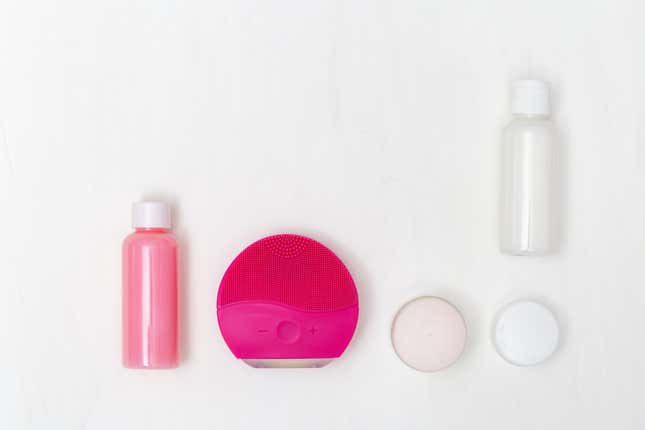Facebook Removes Ads for Breastfeeding Workshops And Postpartum Pants, Calls Them ‘Adult Content’
It's not just Facebook—women and people with vaginas are told all the time, implicitly and explicitly, that our bodies are gross, shameful, and inappropriate.
Entertainment

According to a new report from the New York Times, more than 60 companies that focus on women’s sexual health and pleasure say ads for their products and services have been unfairly taken down from Facebook — not because of safety or issues of medical inaccuracy, but because they were “adult products and services.”
Some of the ads, you’ll note, were for products like a breastfeeding workshop, comfortable postpartum pants, and menopausal health products to alleviate pelvic pain. Two other rejected ads from a company called Love Matters, which educates about sexual and reproductive rights, offered information about consent education and living with HIV. The reason allegedly provided by Facebook? They were “promoting an escort service.”
There’s nothing particularly monumental about social media platforms applying rigorous content moderation standards. But the companies who spoke with the Times say their ads are being targeted by double standards that aren’t applied to sexual health products catered to male users. They say their own ads follow Facebook’s complex minefield of ad guidelines for sexual wellness products, which, per the Times, include:
“Facebook provides examples of ads that are not permitted (“buy our sex toys for your adult pleasure”) and those that are (‘new moisturizing lube to relieve vaginal dryness on a day to day basis’ and ‘practice safe sex with our brand of condoms’).”
Facebook also doesn’t have a “blanket ban on words like ‘menopause’ or ‘vagina,’” but considers the context of each ad, a Meta spokesperson told the newspaper.
-

-

-

-

-

-

-

-

-

-

-

-

-

-

-

-

-

-

-

-

-

-

-

-

-

-

-

-

-

-

-

-

-

-

-

-

-

-

-

-








































